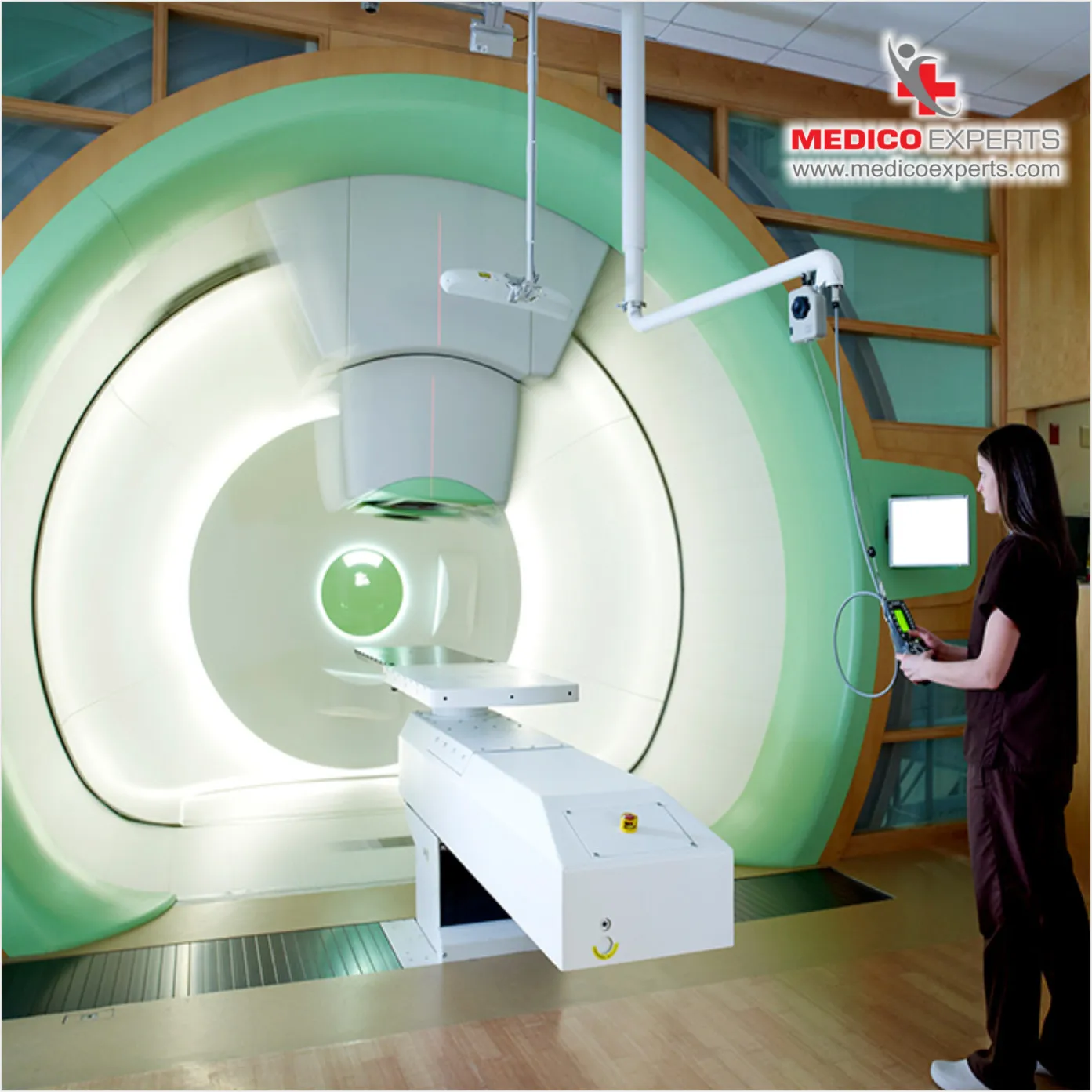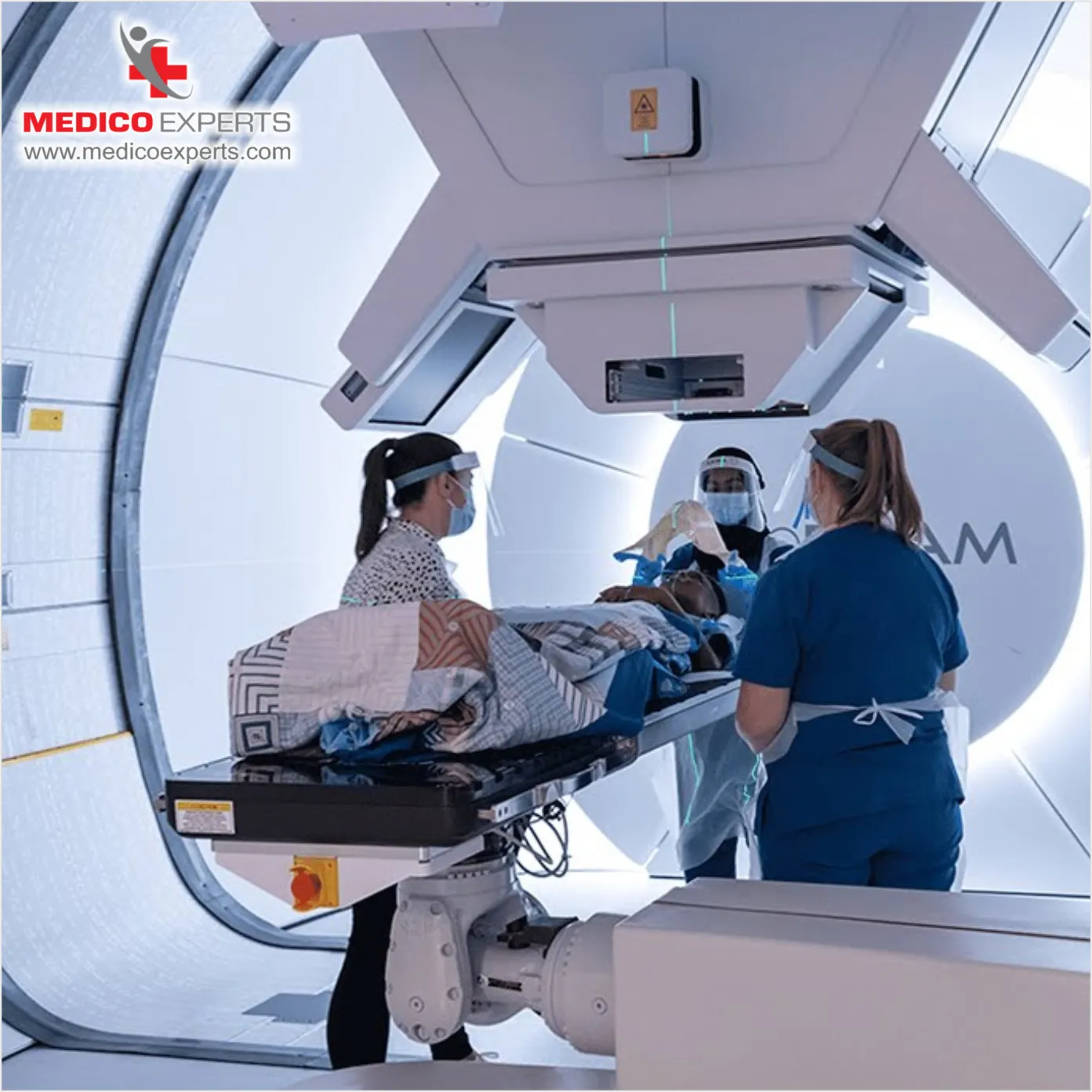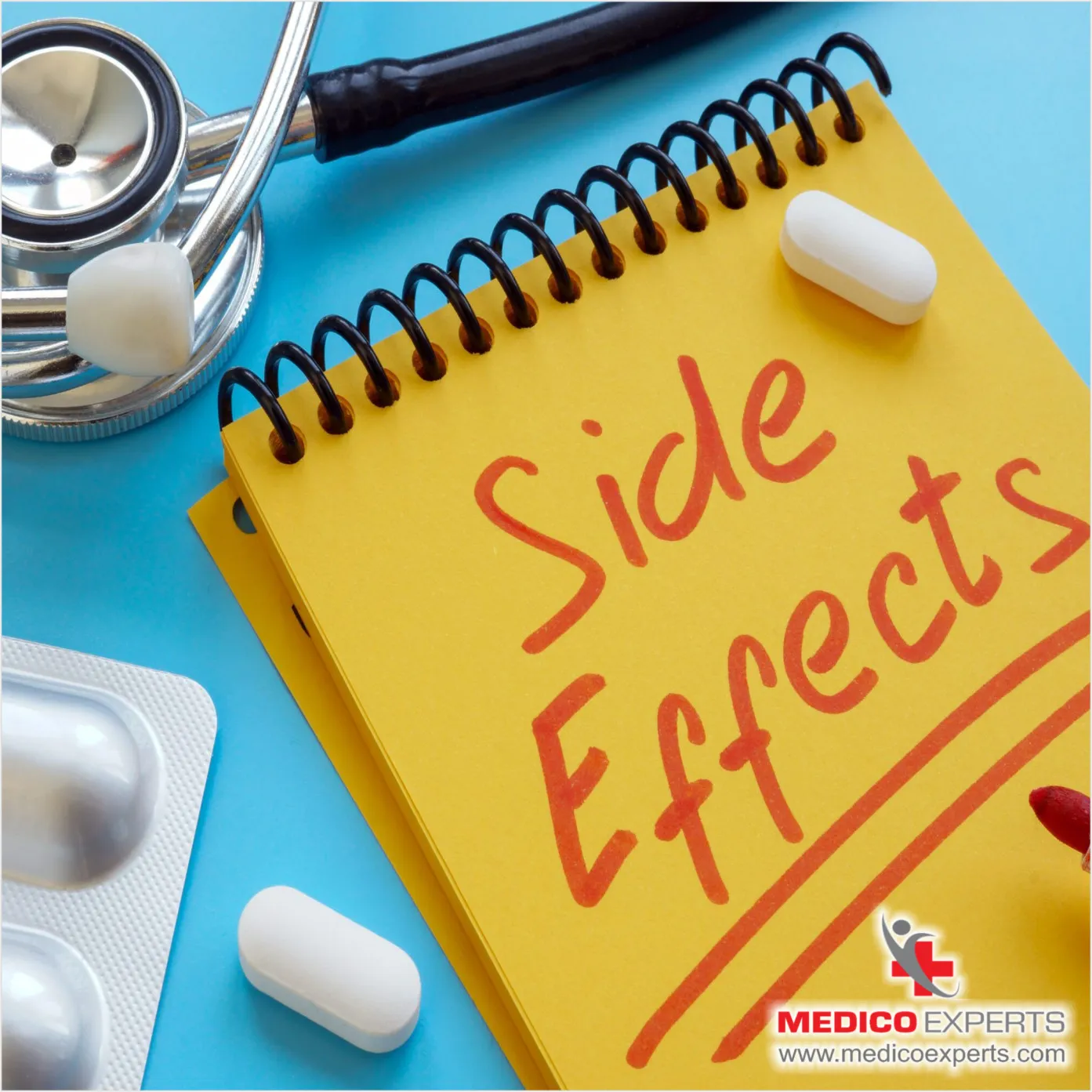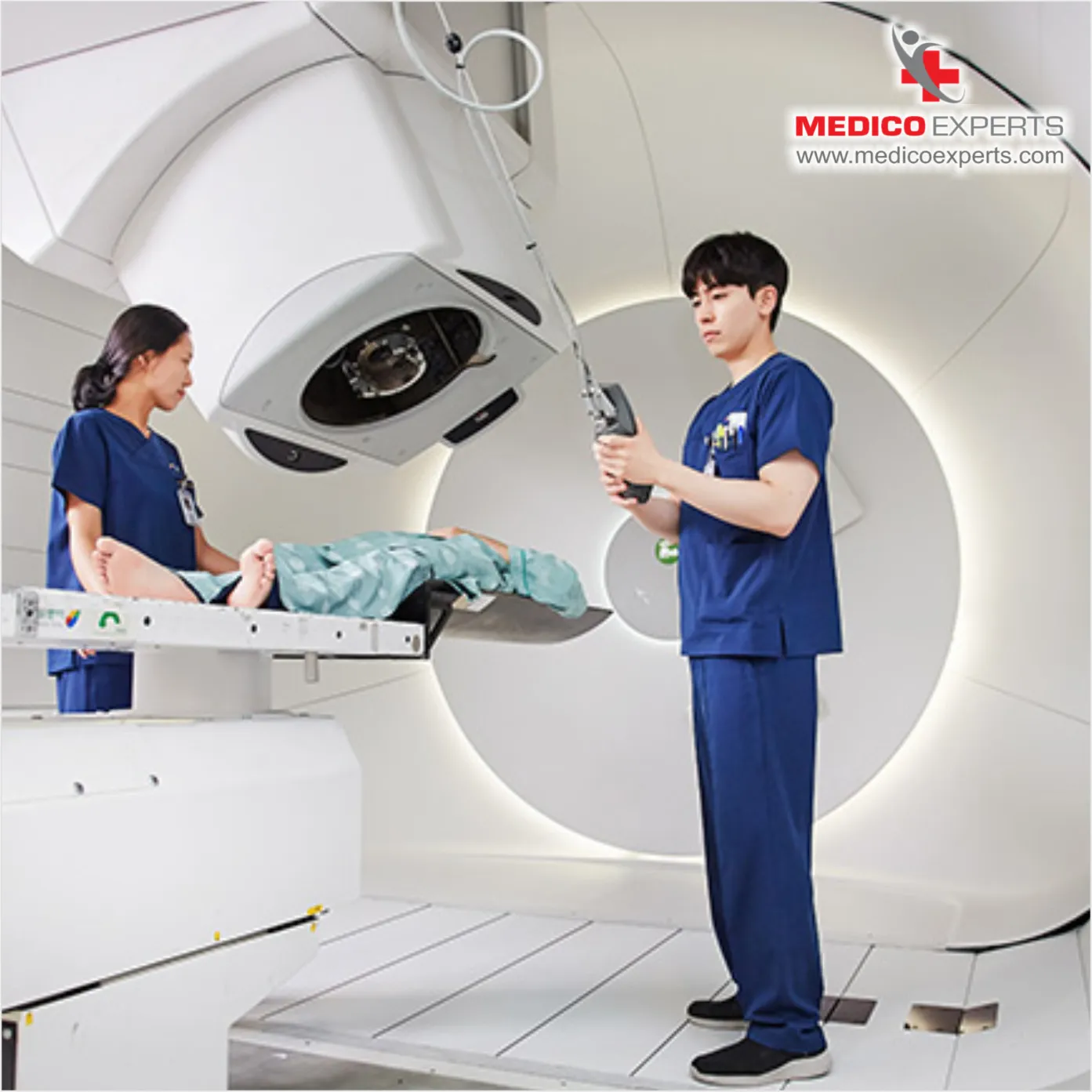The Science Behind Proton Therapy Effectiveness: Precision, Safety, and Success Rates for Cancer Patients
A cancer diagnosis itself is a life-changing moment. It turns your life upside down. You want a treatment that is both gentle and effective.
The thought of undergoing conventional radiation may add to your physical and emotional burden, as they have some short-term and long-term side effects.
But there is a radiation therapy that is accurate and precise. It minimizes side effects and maximizes treatment outcomes. Proton therapy does that for you.
It uses advanced technology to deliver radiation directly to the tumor. It is the best treatment for patients who want a balance between powerful treatment and protecting their bodies from harmful drugs and radiation. But you may want to know about proton therapy effectiveness. Keeping that in mind we have brought all the information you need to have to make a confident decision.

Key Takeaways:
- Proton therapy is an FDA-approved radiation therapy that is effective and safe.
- Protons have the unique ability to directly send radiation to the tumor and save the healthy tissues.
- It can treat brain, lung, breast, head, neck, and spine cancers.
- Over the years, proton therapy has advanced and become more accurate and precise.
- There are considerations you need to make before opting for proton therapy.

Understanding Proton Therapy Effectiveness
You may be worried about the pain you need to undergo during cancer treatment. You are even more stressed as you already know that conventional radiation is effective, but it damages healthy tissues. Proton therapy uses a smarter and more advanced approach.
It uses precise proton beams to target the tumors more accurately and protects the healthy tissues. This leads to fewer side effects and better treatment outcomes.
It is an FDA-approved radiation therapy, and top government agencies, physicians, and many health insurance providers across the globe approve it.
Let’s learn about the following points to understand proton therapy effectiveness better:
Proton beams have some special characteristics. They have a unique physical property called the Bragg Peak. It is a phenomenon that allows protons to deliver their energy directly to the tumor site. This means the radiation only works on the cancerous area and not the healthy tissues.
This precision in targeting tumors makes proton therapy most effective for cancers located near critical structures, like the brain, spine, or eyes.
It is used to treat pediatric cancers, prostate cancer, head and neck cancers, and other cancers. PT is preferred for pediatric cancer because it reduces the risk of secondary cancers and minimizes damage to the developing tissues and cells of a child.
Prostate cancer can be effectively treated using proton therapy, as per experts. There will be fewer side effects compared to conventional radiation.
It is excellent for complex anatomical areas like the head and neck. Proton therapy shows better results in treating head and neck cancer compared to Intensity-Modulated Radiation Therapy (IMRT), another form of radiation. This results in improved overall survival, a reduction in cancer-related deaths, and lower chances of second cancer.
Proton therapy is also used in other cancers like lung, liver, and the central nervous system.
One of the benefits of proton therapy is its ability to drastically lower the chances of side effects. Patients report better health and well-being after the PT treatment.
A study by Washington University shows that patients who underwent proton therapy experienced a two-thirds reduction in the relative risk of severe side effects within 90 days of treatment.
Everyone cannot undergo proton therapy. Factors like the tumor’s stage, location, and type are considered when deciding the candidacy of the patient. A patient’s health is another important factor in the decision-making process.
Your selection will be done by a radiation oncologist. They will decide whether you need PT or another form of radiation.
The technical advancements in proton therapy have made it even better. Advancements like pencil beam scanning allow even more precision in targeting tumors.
Image-guided proton therapy is another advancement that integrates imaging technology to get more accuracy in treating cancer.
Intensity-Modulated Proton Therapy (IMPT) adjusts the intensity of the radiation to conform to the three-dimensional shape of the tumor and protect the healthy tissues surrounding it.
Evaluating Proton Therapy Effectiveness
To understand how effective proton therapy is, you need to learn about a few important points:
A. What does the Research say about Proton Therapy?
Scientists and doctors are researching the proton therapy effectiveness for treating cancer. Studies indicate that it can precisely target the tumor and reduce damage to surrounding healthy tissues. During the therapy, precisely concentrated doses of radiation are delivered to the tumor tissues, a review published in Nature confirmed.
Proton Therapy effectiveness and success in showing better outcomes for squamous cell carcinoma of the head and neck are confirmed by experts.
Proton therapy causes less damage to healthy tissues compared to conventional radiation. It reduces radiation damage to healthy tissues by 50 to 70%. Reduced radiation damage means fewer side effects.

B. What is the Success Rate of Proton Therapy?
The success rate of proton therapy depends on many factors, like the patient’s health, the type, and the stage of cancer. Cancers like chordomas, brain tumors, and liver cancers show a success rate of 85%-90%.
A Study also shows that patients undergoing proton therapy recover faster and experience fewer side effects. Another study indicated that the 4-year survival rate of patients with prostate cancer undergoing PT is between 94.4% and 92.5%, depending on the stage of cancer.
The success rate for lung cancer is between 90% and 52% at 2 years. The 1-year survival rate was 87.5%.

C. What are the Side Effects of Proton Therapy?
Proton therapy is designed to attack the cancer cells accurately and minimize the side effects. There can be mild side effects as the cancer cells break down or small amounts of energy reach the nearby healthy tissues.
Because doctors can control where PT delivers its highest energy, it affects fewer healthy tissues and results in fewer side effects compared to conventional radiation therapies. The side effects will depend on the area being treated and the dose of the radiation.
Common side effects will include:
- Fatigue
- Temporary hair thinning or loss in the treated area
- A bit of soreness in the treated area
- Mild skin redness in the treated area.
Your doctor will guide you on managing these side effects.

Can Proton Therapy Reduce the Cancer Recurrence Rate?
Proton therapy can reduce the cancer recurrence rate by accurately delivering high doses of radiation to the tumor cells and minimizing damage to surrounding healthy cells. It can be beneficial for many recurrent cancer types like brain, head and neck, lung, breast, and gastrointestinal.
It also lowers the chances of secondary cancers due to unnecessary exposure to radiation on healthy tissues.

Case Studies
Viva was diagnosed with breast cancer shortly after becoming a mother in 2019. She underwent proton therapy and MedicoExperts guided her throughout the treatment. Viva maintained a better overall well-being during the treatment. She recovered since and enjoying a happy and healthy life with her family.
Aarav, a 42-year-old engineer from Bangalore, was experiencing headaches and vision issues consistently. His wife told him to take things seriously and get an appointment with the doctor. After examination and checkups, the doctor found that Aarav had a brain tumor. He recommended proton therapy after proper consideration.
Aarav approached MedicoExperts for further guidance. We assisted him throughout his treatment. He experienced mild fatigue and occasional nausea after treatment, but his medical team helped him manage these side effects.
Follow-up scans showed a significant reduction in tumor size after six weeks of treatment. Aarav has now returned to his normal routine but has continued with his regular checkups, tests, and monitoring.
What are the Considerations you need to make before Opting for Proton Therapy?
If you are considering proton therapy as a treatment option, you need to keep in mind the following points:
The cost is one of the most important factors in decision-making. In India, the cost is lower than in countries like the US, UK, or Germany. Which means you are getting international quality medical services at a fraction of the cost.
In the US, the full treatment cycle can surpass $200,000 (approximately INR 14,000,000). But in India, the cost is between $45,000 and $65,000 (around INR 3,150,000 to INR 4,550,000).
All hospitals don’t have proton therapy. You might need to travel, and for that, you need extra costs for staying and accommodation. MedicoExperts can be your guide in India. We will make sure that you get the best care in the top hospital in India. While doing so, we will keep in mind all your needs and requirements.
Not all cancers require proton therapy. Your oncologist can help determine if it’s the right fit for your condition. A second opinion can also be helpful, and MedicoExperts will help you get that.
Takeaway
Proton therapy is an FDA-approved radiation that is popular due to its precision and the ability to safeguard the healthy tissues surrounding cancer cells. It is known for its precision in targeting tumors while protecting healthy cells and tissues.
So if your physician has recommended it, go ahead as it is a safe and effective option that will give you a faster recovery.
if you are planning to undergo it in India, MediCoExperts can be your guide in finding the best hospitals and top specialists in the country.
No, those are not the only things we do.
If needed, we help you with your journey, accommodation, or finding the perfect medical services.
Let us do the heavy lifting for you, so you can focus on your treatment with peace of mind.

Access Advanced Cancer Care Without The Stress
Frequently Asked Questions (FAQs):
Q1. What are the long-term outcomes of patients undergoing proton therapy?
A. Patients who opt for proton therapy experience good long-term outcomes. They also have high survival rates, effective disease control, and experience minimal long-term side effects.
Q2. How many times do you need to undergo proton therapy?
A. The number of proton therapy sessions you need depends on the specific diagnosis your doctors make. The sessions can be anywhere between 5 treatments to 39.
Q3. Why does cancer come back after radiation?
A. Treatment doesn’t kill every single cancer cell in the body. Either the immune system kills the remainder of the cancerous cells, or they die naturally. Unfortunately, sometimes they do not die and regrow, resulting in cancer recurrence.
Q4. Does proton therapy shrink tumors?
A. Yes, PT shrinks tumors by destroying the DNA of cancer cells.
Q5. Can cancer come back after 20 years?
A. Yes, cancer can come back after 20 years.
Q6. How do you know that proton therapy has worked?
A. Doctors will do imaging testing after proton therapy to check whether the treatment has worked. Sometimes the cancer responds to the therapy immediately, but at times it may take weeks or months.
Q7. What are proton therapy clinical trials, and how do they benefit patients?
A. Proton therapy clinical trials are research studies that evaluate the safety, effectiveness, and potential benefits of proton therapy for various cancers. Participating in proton therapy clinical trials gives patients access to innovative treatments and helps researchers improve cancer care outcomes.
Q8. How does proton therapy effectiveness compare to traditional radiation?
A. Proton therapy effectiveness is superior to traditional radiation due to its precise targeting, which reduces damage to healthy tissues and lowers the risk of side effects.
Q9. Are there studies confirming proton therapy effectiveness?
A. Yes, multiple clinical trials support proton therapy effectiveness, showing improved cancer control rates and reduced complications compared to conventional radiation.
- https://www.pennmedicine.org/cancer/navigating-cancer-care/treatment-types/proton-therapy/frequently-asked-questions-about-proton-therapy
- https://www.sciencedirect.com/topics/medicine-and-dentistry/bragg-peak#:~:text=A%20Bragg%20curve%20describes%20(plots,the%20particles%20come%20to%20rest
- https://pmc.ncbi.nlm.nih.gov/articles/PMC8489490/
- https://www.sciencedirect.com/science/article/abs/pii/S0167814023898656#:~:text=Conclusion,of%20radiation%20therapy%20for%20HNSCC
- https://medicine.washu.edu/news/proton-therapy-as-effective-as-standard-radiation-with-fewer-side-effects/#:~:text=After%20taking%20steps%20to%20control,receiving%20X%2Dray%20radiation%20therapy
- https://pmc.ncbi.nlm.nih.gov/articles/PMC6087865/
- https://pubmed.ncbi.nlm.nih.gov/30616799/
- https://pmc.ncbi.nlm.nih.gov/articles/PMC10177085/
- https://jhoonline.biomedcentral.com/articles/10.1186/s13045-018-0683-4
- https://www.nature.com/articles/s41392-024-01856-7
- https://pmc.ncbi.nlm.nih.gov/articles/PMC9179360/
- https://www.pennmedicine.org/cancer/navigating-cancer-care/treatment-types/proton-therapy
- https://medicine.washu.edu/news/proton-therapy-as-effective-as-standard-radiation-with-fewer-side-effects/#:~:text=After%20taking%20steps%20to%20control,receiving%20X%2Dray%20radiation%20therapy
- https://pmc.ncbi.nlm.nih.gov/articles/PMC8489490/
- https://pmc.ncbi.nlm.nih.gov/articles/PMC4608411/#:~:text=The%20overall%20survival%20rate%20for,chemotherapy%20(n%20%3D%2011)
- https://pmc.ncbi.nlm.nih.gov/articles/PMC4608411/#:~:text=The%20overall%20survival%20rate%20for,chemotherapy%20(n%20%3D%2011)
- https://pmc.ncbi.nlm.nih.gov/articles/PMC6132082/
Relevant Articles For You
Recommendations To Understand Different Treatments

Author Bio:
Dr. Yashashree Joshi – MBBS, MD (Philippines)
Dr. Yashashree Joshi, MD, is a globally-trained oncologist with a robust academic background and extensive experience in pioneering cancer treatments. Dedicated to patient-centered care, she continually integrates the latest advancements in oncology to provide her patients with innovative and personalized treatment plans.
Content Medically Reviewed By MedicoExperts Editorial & Clinically Review Board



